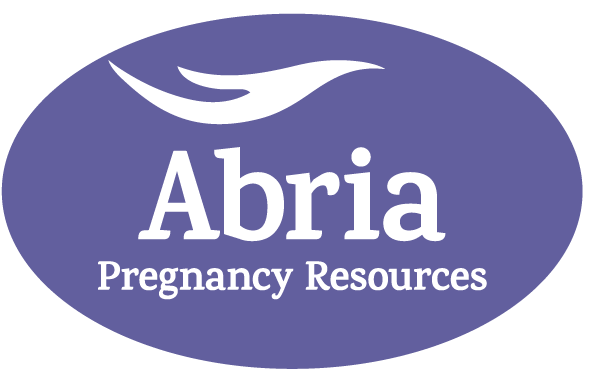Considering abortion?
What do you know about abortion methods, side effects, and potential risks? We believe the more you know, the more confident you’ll feel about your decision. Before you make an appointment at the abortion clinic, let’s talk.
What is an abortion?
Abortion is a serious medical procedure that terminates a pregnancy. There are two main types of abortion, medical (the abortion pill) and surgical.
Different abortion methods are used during different stages of pregnancy. It’s important to get complete information based on your unique health and pregnancy before making a decision.
Abria’s no-cost services include medical counseling, pregnancy testing, ultrasounds, and STI testing and treatment. Schedule an appointment online or call or text for more information.
What Should I Do First?
Pregnancy Test Confirmation
First, you need to confirm your pregnancy. Many at-home pregnancy tests are reliable, but because your pregnancy is unexpected and you’re nervous, you might take the test too early or incorrectly. We offer no-cost lab-quality pregnancy tests that are administered by a nurse so you’ll get reliable results.
Ultrasound
Even if you confirm your pregnancy with one of our no-cost tests, we encourage you to get an ultrasound if the test is positive. At Abria, we offer no-cost ultrasounds. Why do you need an ultrasound? Your eligibility for particular types of abortion is determined by the number of weeks you’ve been pregnant. If you’re less than 10 weeks and 0 days, you qualify for a medical abortion. Are you confident about the number of weeks you’ve been pregnant?
Getting Tested for STIs
Some STI’s increase the risk of post-abortion infection and complications. At Abria, we can provide you with no-cost gonorrhea and chlamydia testing, which are the two most common STIs. Get tested so you can make an informed decision.
The Two Different Types of Abortion
Medical
The abortion pill is a medical abortion. To qualify for this procedure, you must be 10 weeks and 0 days or less into your pregnancy. Although it’s called the abortion pill, it isn’t one pill and you’re done. It uses two very powerful drugs.
The first drug blocks a particular hormone known as progesterone. When you’re pregnant, progesterone helps the fertilized egg stay attached to your uterus. The drug causes the lining of the uterus to thin so it no longer keeps the pregnancy implanted. The second drug causes labor-like contractions to remove the pregnancy from the uterus.
A surgical abortion is an in-clinic invasive procedure that must be performed by medical staff. There are many types of surgical abortions. Depending on how far along your pregnancy is determines the type of surgery you have.
The most common surgical abortion procedure is the Vacuum Aspiration method, which includes using a syringe or vacuum to remove the pregnancy out of your body. Another abortion procedure is known as a D & C (dilation and curettage). This method uses a curette to scrape the lining of your uterus.
What Are the Potential Risks?
Medical Abortion
- Incomplete abortion, which may need to be followed by surgical abortion
- An ongoing unwanted pregnancy if the procedure doesn’t work
- Heavy and prolonged bleeding
- Infection
- Fever
- Digestive system discomfort
Surgical Abortion
- Post Abortion hemorrhage
- Damage to the cervix
- Preterm birth in future pregnancies
- Infection
- Perforation of the uterus
- Ongoing unwanted pregnancy if procedure doesn’t work
Learn More About All Of Your Options
We want you to be fully informed about abortion, particularly in the state of Minnesota. Abria can help answer your abortion-related questions. Schedule an appointment today or call/text for more information.
Here at Abria, we are dedicated to giving you all your options and complete, medically accurate information.
We are a medical clinic operating under the direction of a licensed board certified physician.
However, the following services are outside of the scope of practice of Abria Medical Clinic: contraception or referrals, abortion, ongoing prenatal care that includes delivery, surgery, infertility evaluation and treatment, prenatal diagnosis and genetic counseling, or complicated gynecology.
Abria offers support at no cost to you regarding your decisions but does not refer for or perform abortions.
